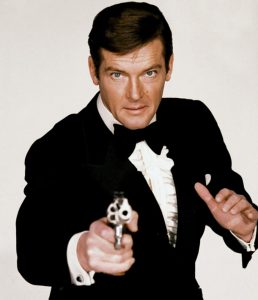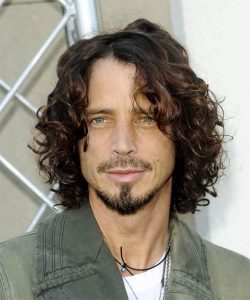Bond. James Bond.
This is the name that made Roger Moore’s career, as he stepped into the shoes of Ian Fleming’s superspy over the course of seven films. He would go on to be voted “Best Bond” in an Academy awards poll, and is beloved for bringing a more light-hearted approach to the character. After a brief battle with cancer, Moore passed away in Switzerland on May 23rd, as confirmed by in a family statement.
“It is with a heavy heart that we must announce our loving father, Sir Roger Moore, has passed away today in Switzerland after a short but brave battle with cancer. The love with which he was surrounded in his final days was so great it cannot be quantified in words,” it read.
Roger Moore was the son of a policeman who investigated a robbery at the home of director Brian Desmond Hurst—this led to Moore being introduced to Hurst and subsequently being hired as an extra on the 1945 film, Caesar and Cleopatra.
Impressed, Hurst went on to pay Moore’s tuition at the Royal Academy of Dramatic Art, where he studied alongside future Bond co-star Lois Maxwell, who would go on to play Miss Moneypenny. It was here that Moore cultivated the effortlessly relaxed and humorous demeanor which would make him later stand out as one of the best Bonds of all time.
At 18, Moore was conscripted just after WWII, and was commissioned into the Royal Army Service Corps as a second lieutenant, serving in the Combined Services Entertainment Section.
In addition to his work as a model, Moore had a very successful career in television, and was well-known to American audiences even before donning Bond’s suit and gun. After starring in the medieval adventure series, “Ivanhoe,” shown in American in 1958, he starred in the popular western, “Maverick,” playing Beauregard Maverick.
In 1962, Moore starred as a wily thief in The Saint, a popular British television series that ran until 1969, and then as a millionaire playboy in The Persuaders from 1971 to 1972, where he became the highest-paid television actor in the world with a salary of 1 million British pounds for a single series.
But it was in 1973 that Moore found his calling as the vodka martini-sipping British spy, James Bond, starring in the 1973 Live and Let Die, and going on to reprise his role six more times.
Moore, hired at 45, was the oldest actor to take on the role, and spend the longest amount of time playing Bond, eventually stepping down in 1985.
Where Sean Connery played Bond as a witty, but serious, detective, Moore’s depiction was decidedly more light-hearted. Playing Bond as a debonair playboy with a firm instinct for tongue-in-cheek humor, Moore quickly became popular with fans, despite the fact that, of all the Bond actors, his performance was the furthest from Ian Fleming’s original creation.
His likability as Bond would go on to earn him the status of “Best Bond”—both in official title, and in the eyes of fans.
Moore wasn’t just good for thrilling audiences, however. After his stint as James Bond, Moore became a United Nations Children’s Fund good-will ambassador thanks to his friendship with Audrey Hepbrun, visiting countries like Ghana, Honduras, the Philippines, and more, as he advocated for some of the world’s most vulnerable children. He made use of his worldwide fame, publically raising issues of landmine injuries, child labor, and iodine deficiency, working for these causes right up until his death.
“With the passing of Sir Roger Moore, the world has lost one of its great champions for children—and the entire UNICEF family has lost a great friend,” said Anthony Lake, executive director of UNICEF.
In 1999, Moore was knighted for his charity work, becoming Sir Roger Moore—a well-deserved title—saying that it “meant far more to me than if I had got it for acting.”
In 2007, Moore was finally awarded a star on the Hollywood Walk of Fame for his work in film and television, appropriately located at 7007 Hollywood Boulevard.
Moore is survived by his wife, Kristina Tholsrup, his daughter, Deborah, and his sons, Geoffrey and Christian. His family, in a statement on Twitter, wrote a moving goodbye, saying “We know our own love and admiration will be magnified many times over, across the world, by people who knew him for his films, his television shows and his passionate work for UNICEF which he considered to be his greatest achievement.”
“Thank you Pops,” they wrote, “for being you, and for being so special to so many people.
Indeed, Moore will live on forever in the hearts of Bond fans everywhere, as well as in the hearts and minds of those lives he touched—and saved—through his charity work.



